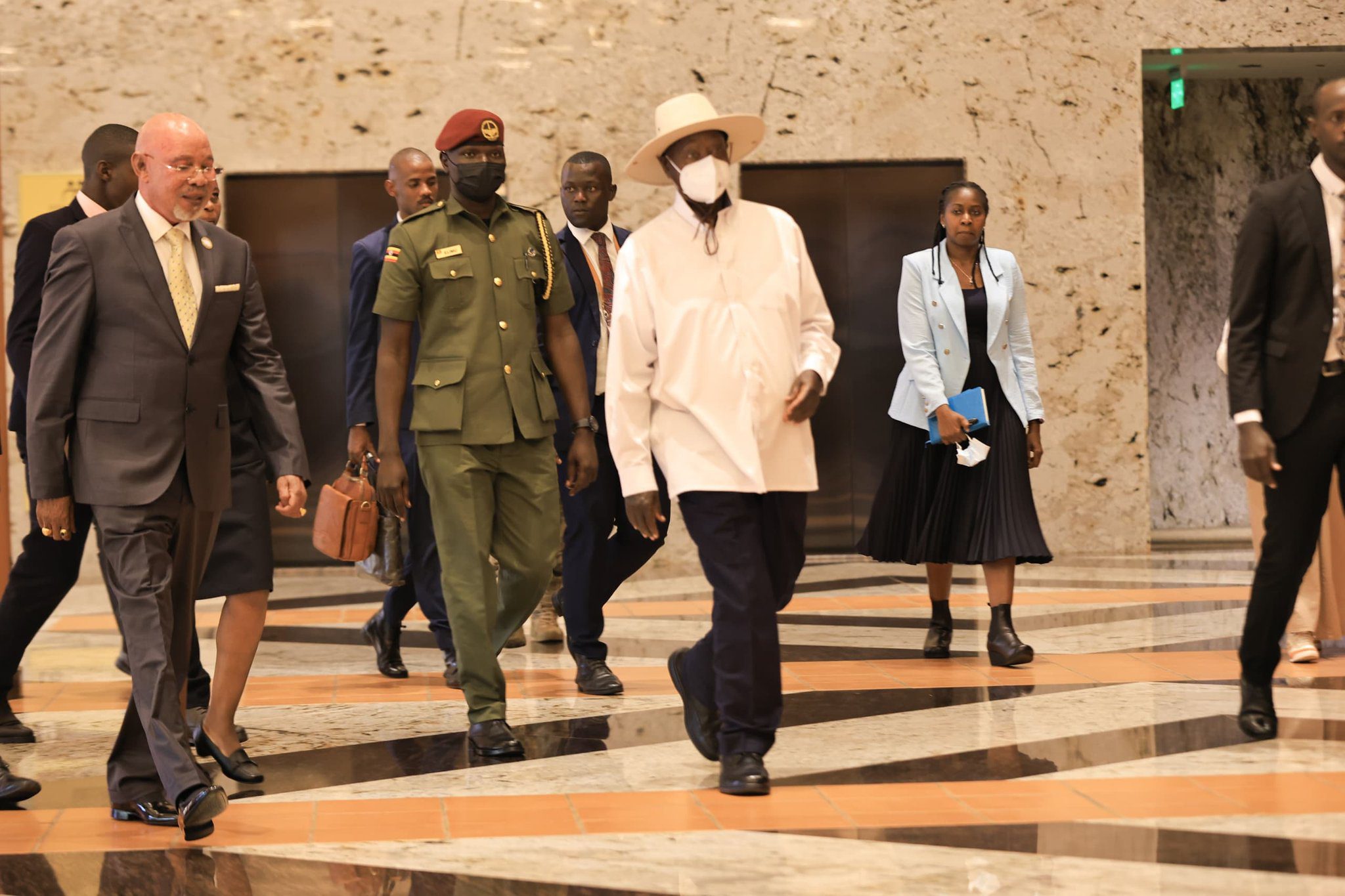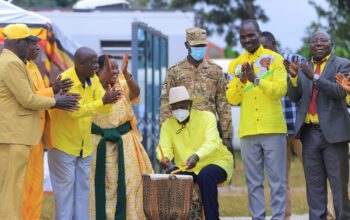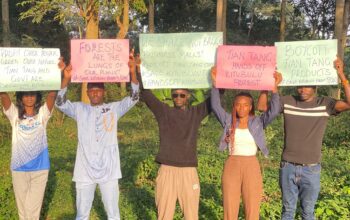By PEACOCK KAWEESA & Agencies
Uganda’s president, Yoweri Kaguta Museveni has revealed the dangers and tension about geo politics of the World.
In a global meeting at the Speke Resort Munyonyo, Mr Museveni advised foreign ministers from different parts of the World to desist of bad politics and poking nose into other countries’ political affairs.
Africa has a lot of burning problems including floads,no electricity, bad roads plus others but we can still struggle to push and sort one by one, said Mr,Museveni.
President Yoweri Kaguta Museveni said in the meeting world Wednesday that “the world to focus on mutually beneficial cooperation and shared prosperity rather than domination and ideological conflict”.
President Museveni, who is also the Chairman of the Non-Aligned Movement, hailed the foresight of NAM’s founding leaders, saying their decision to pursue neutrality during the Cold War established a vital principle for global peace and cooperation.

“I salute the Non-Aligned Movement. Our elders who started it did us a great service because they achieved neutrality,” H.E. Museveni said.
“At that time, there was a conflict between the socialist camp and the capitalist camp, and our elders said, ‘No, we want to be neutral. We want to judge issues on merit.’ That helped us then, and it is even more important today.”
He warned that the ambitions of hegemonism, where some powers attempt to control the world, were outdated and counterproductive.
“Anybody who thinks they should control the world is wasting their time,” he said.
President Museveni further emphasized the need for the global community to concentrate on “minimum mutually beneficial interests” such as trade, investment, and tourism, areas that unite rather than divide nations.
“My advice to people in the world is that we concentrate on minimum mutually beneficial interests: trade, investments, tourism, and mutual support in any other area.
Where we don’t agree, let us act by good example and not coercion. If you think you are right, show it by doing things properly in your own country so that others learn from you,” he said.
Drawing inspiration from Christian teachings, quoting scripture: “Let your light so shine before men that they may see your good deeds and praise your Father who is in heaven”, President Museveni explained that positive examples, not force, should guide relations among nations.
He recalled the Thirty Years’ War in Europe, triggered by religious intolerance during the Middle Ages, and the fall of the Austro-Hungarian Empire after failed attempts to suppress emerging social systems.
“When one of the kings of England wanted to become Protestant, the Pope refused to allow anyone to change from Catholicism, and that caused a lot of chaos,” he said. “In the end, the Pope failed.”
Turning to Africa’s economic situation, President Museveni reiterated his long-standing argument that global prosperity depends on raising purchasing power in all regions.
“If Africa’s GDP per capita was $20,000, we would have a total GDP of about $30 trillion. At $25,000, it would reach $45 trillion. That would not only make Africa richer but would benefit our trading partners because we would buy more from them,” President Museveni explained.
He urged NAM countries to promote industrialization, science, and human resource development to achieve equitable global affluence.
“We are very happy that you have come to Uganda in such big numbers. I thank you for honoring us with the chairmanship of the Non-Aligned Movement. When I look around and see all of us together, I believe we may be the hope of the world,” he said.
He emphasized that the movement’s unity, grounded in equality and mutual respect, can serve as a foundation for a fairer world order.
The meeting also heard from representatives of the United Nations and the African Union, who commended Uganda for its active leadership of the Non-Aligned Movement and reaffirmed the relevance of NAM in the current multipolar world.
The Non-Aligned Movement was founded in 1961 in Belgrade by leaders including Jawaharlal Nehru (India), Josip Broz Tito (Yugoslavia), Gamal Abdel Nasser (Egypt), Sukarno (Indonesia), and Kwame Nkrumah (Ghana).
Its objective was to maintain independence from the power blocs of the Cold War while promoting peace, sovereignty, and cooperation among developing nations.





